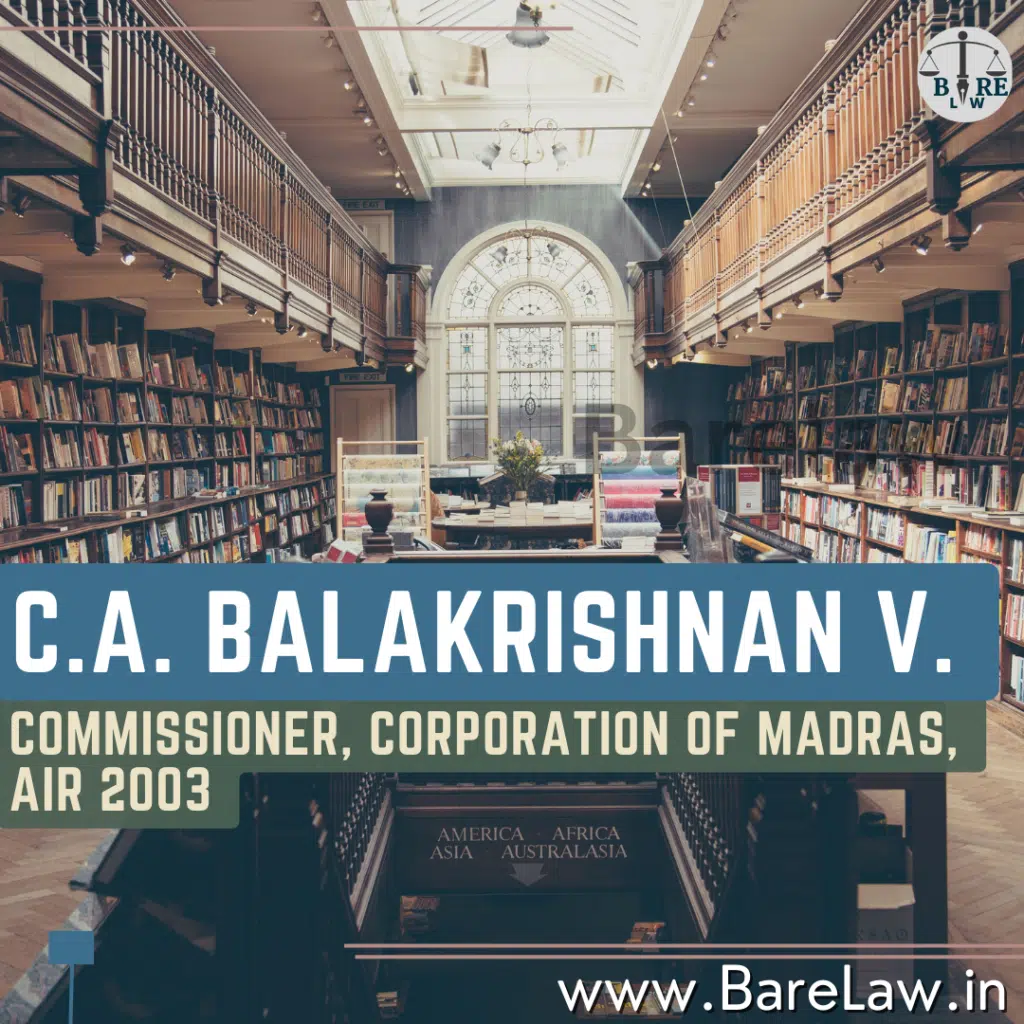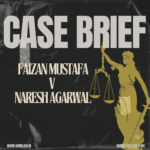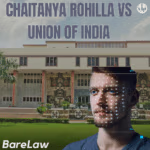
The case of C.A. Balakrishnan v. Commissioner, Corporation of Madras, AIR 2003 Mad. 170, is an important decision that addresses the applicability of Order II, Rule 2 of the Code of Civil Procedure (CPC) to writ petitions filed under Article 226 of the Constitution of India.
Case Facts
The government closed down C.A. Balakrishnan’s canteen, so he filed a civil suit for mandatory injunction and restoration of possession. He applied three times for interlocutory orders to that effect, but all were dismissed. Nevertheless, he was given permission to take away his movable properties from the canteen. Notably no appeal was made by Balakrishnan against these orders. Instead of appealing, he went ahead and filed a Writ Petition under Article 226 seeking a writ of mandamus against the respondents requiring them to restore possession of the premises, as well as an order for exemplary costs and damages. This happened while his civil suit was pending before court; though before High Court could hear the Writ Petition, the civil suit was decreed ex-parte in favour of Balakrishnan.
Legal Issue
The main issue to be determined is whether or not writ petition under Article 226 before High Court is tenable in view of Order II Rule 2 CPC which precludes subsequent suits based on one and same cause of action if certain reliefs are claimed by a party in such suit or claim.
High Court Ruling
A second suit may be barred because it is res judicata and similarly filing writ petition may also be held res judicata if facts so warrant. The Court noted that public policy underlying Order II Rule 2 equally applies to writ petitions as well. The underlying principle behind this rule is that once any litigation has been instituted seeking any kind of relief based on certain causes of actions such person cannot invoke the writ jurisdiction for similar reasons. The Supreme Court’s judgment in Devilal v Sales Tax Officer Ratlam played a big role in shaping its decision since it reinforced the significance of public policy in relation with finality judgments which are part and parcel rule of law . Constructive res judicata should apply because otherwise multiple writ petitions on the same matter would be allowed to be filed which goes against the principle of finality in judgments, curbs legal harassment and ensures justice to all.
Importance of the Case
C.A. Balakrishnan v. Commissioner, Corporation of Madras has significance because it discusses Order II Rule 2 CPC in relation to writ petitions under Article 226. On another note, it establishes that the same principles with respect to multiplicity of suits based on one and same cause of action also govern filing of writ petitions after a civil suit on the same subject matter. This ruling confirms that res judicata and constructive res judicata are still applicable in the domain of writ jurisdiction thereby stressing the importance of finality in litigation as well as avoiding multiple litigations around similar issues through different courts.
In short this case reaffirms a general rule in law that constitutional remedies cannot be used by litigants to escape restrictions imposed by civil procedure laws for filing the same causes of action thus upholding integrity and efficiency required in free systems of government.



